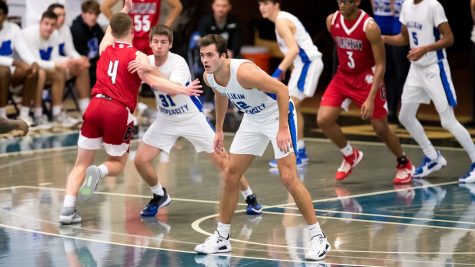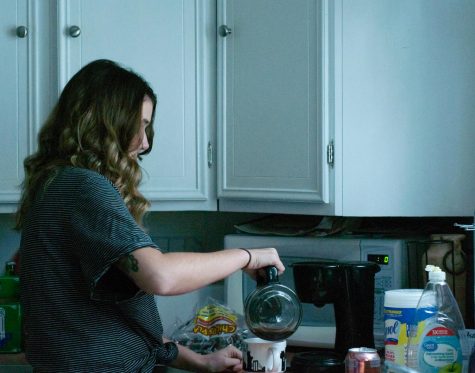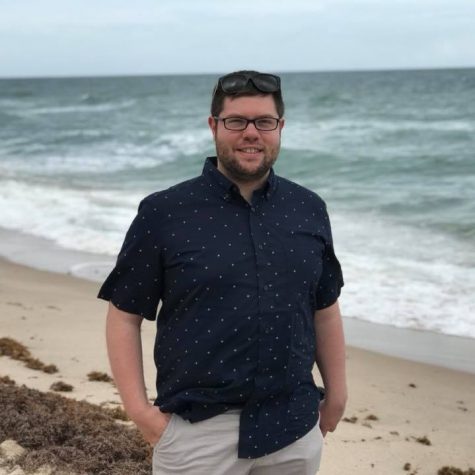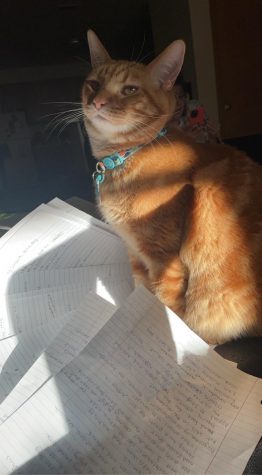To Study Abroad or Not to Study Abroad (That is the Question)
Studying abroad is arguably one of the most unique and eye opening experiences someone can have while in college. Immersing one’s self in a different culture in a foreign country is something that is not only exciting but beneficial.
“I really learned how to take care of myself and my friends in a place that nobody else would be there to help,” said Jake Wagner, a junior BFA acting major, who studied in London this past fall. “I learned how to keep myself healthy and also engaged with the city. I realized just how many things I have to do in a day to survive in a thriving metropolis like London.”
Junior secondary social science education major Emily Wunnenberg also studied abroad in London last fall and enjoyed traveling to other countries. “I went to six countries, and they each had their own set of social norms and customs that made them unique. I enjoyed learning each one, even though sometimes it lead to embarrassment if I didn’t pick up on them. But you have to roll with the punches and learn from your mistakes.”
Crystal Prusek, a junior BFA acting major, also studied in London and enjoyed comparing different cultures to her own. “My favorite part about studying abroad was getting to see what was ‘comfortable’ for someone else. For instance, our comfort food here in America is mac and cheese, so I wanted to see what England’s version of mac and cheese was.” Prusek also liked to watch British TV and see how it differed from America. “We [America and Britain] share movies- we all know what Harry Potter is- but our everyday TV shows are different. I would turn on the TV at night and Goggle Box would be on, which is much different from what we watch here.”
One of the biggest concerns students typically have about studying abroad is the cost. Worrying about not having enough money is common, but there are many things students can do so they can afford the trip. Students can apply for scholarships, loans, save money during the summer, and budget once they start the semester.
“I’ve known about this trip for years, so during the summer instead of taking theatre jobs like I wanted to, I got jobs in offices and things that made more money,” said Wagner. “While I was there [in London], I took advice from Carmen [Aravena] and did all of my grocery shopping in ethnic neighborhoods and found all the best stuff in Kensington and an Arabic neighborhood.”
Wunnenberg said, “I got a part-time job at Kirkland last year. I worked four hours a week and the $20 really added up. I paid for most of my plane ticket that way.”
Prusek said, “I went vegetarian to save money and to be healthier. That was me personally, but there are little things like that that help- go to little markets instead of big grocery stores. Just be conscious about how much you’re spending.” She also had some advice for prospective study abroad students. “If you think you can maybe afford it, just do it. Finances are somewhat of an afterthought. We will never have this opportunity again, where we aren’t tethered to anything or anyone. It’s an experience you will never forget and it will help you later in life.”
There is something truly special about studying abroad. It is difficult to put into words, but regret is certainly not one of them.
“I’m a different person now,” said Wunnenberg. “I don’t feel the same way I felt about America as I did before. I don’t feel the same about my life in general. I’m more informed and I feel as if I’m working on my global perspective and care more about other countries, people, and global issues.”
Prusek agreed, stating, “I became a citizen of the world. I understand how other people live. I knew what it meant to be an American abroad.”
If you are considering the opportunity to study abroad, visit the Center for International Education on the second floor of Shilling and look out for the next scheduled meeting.









